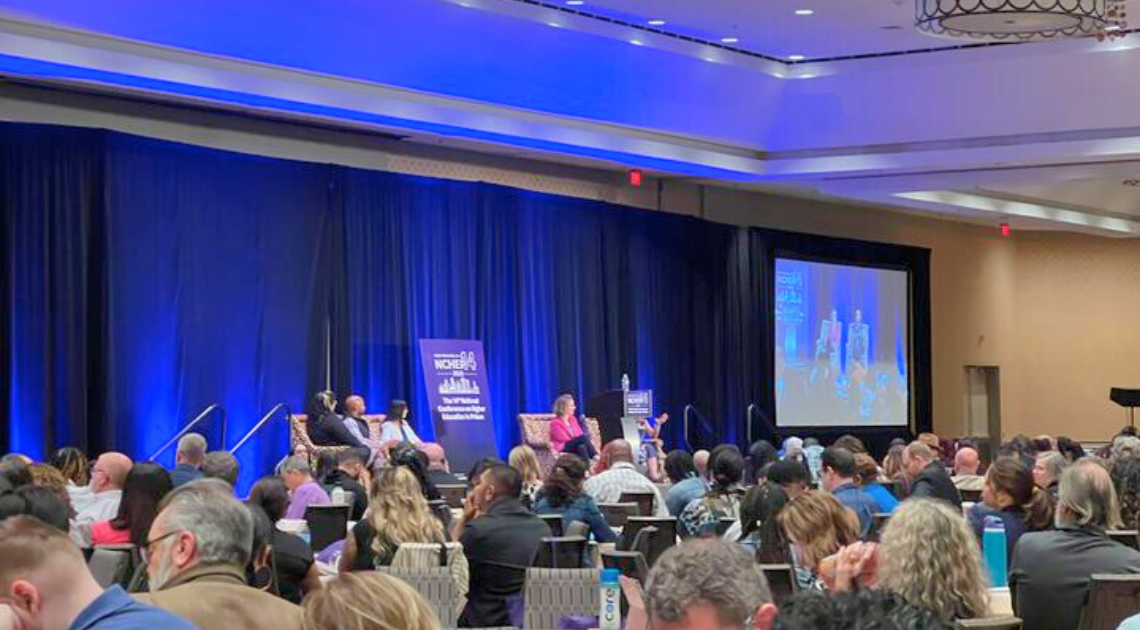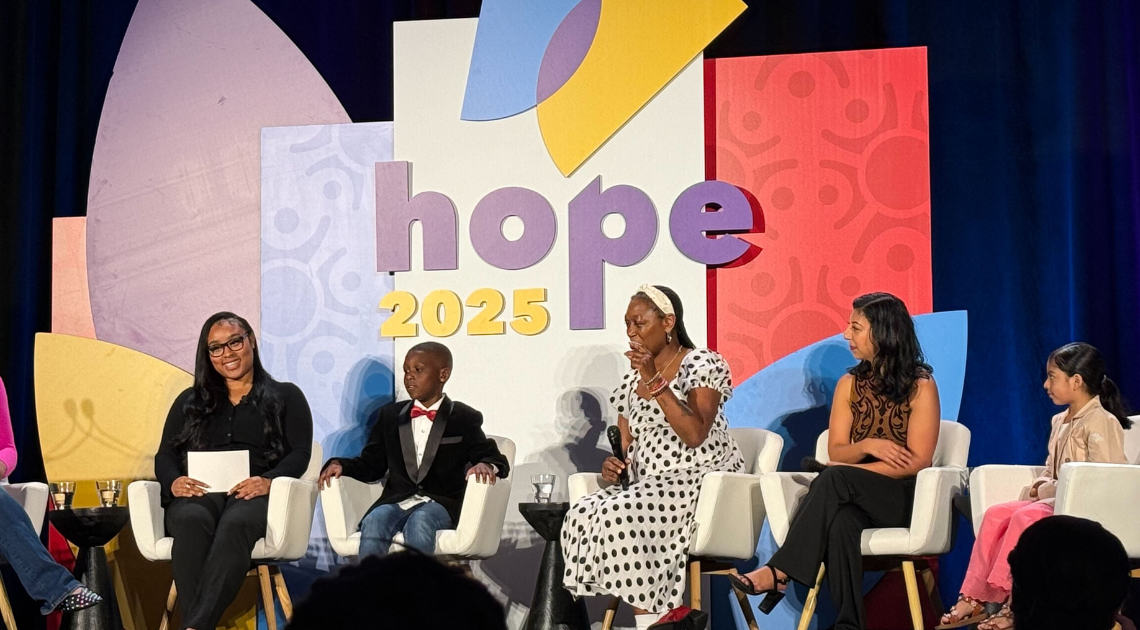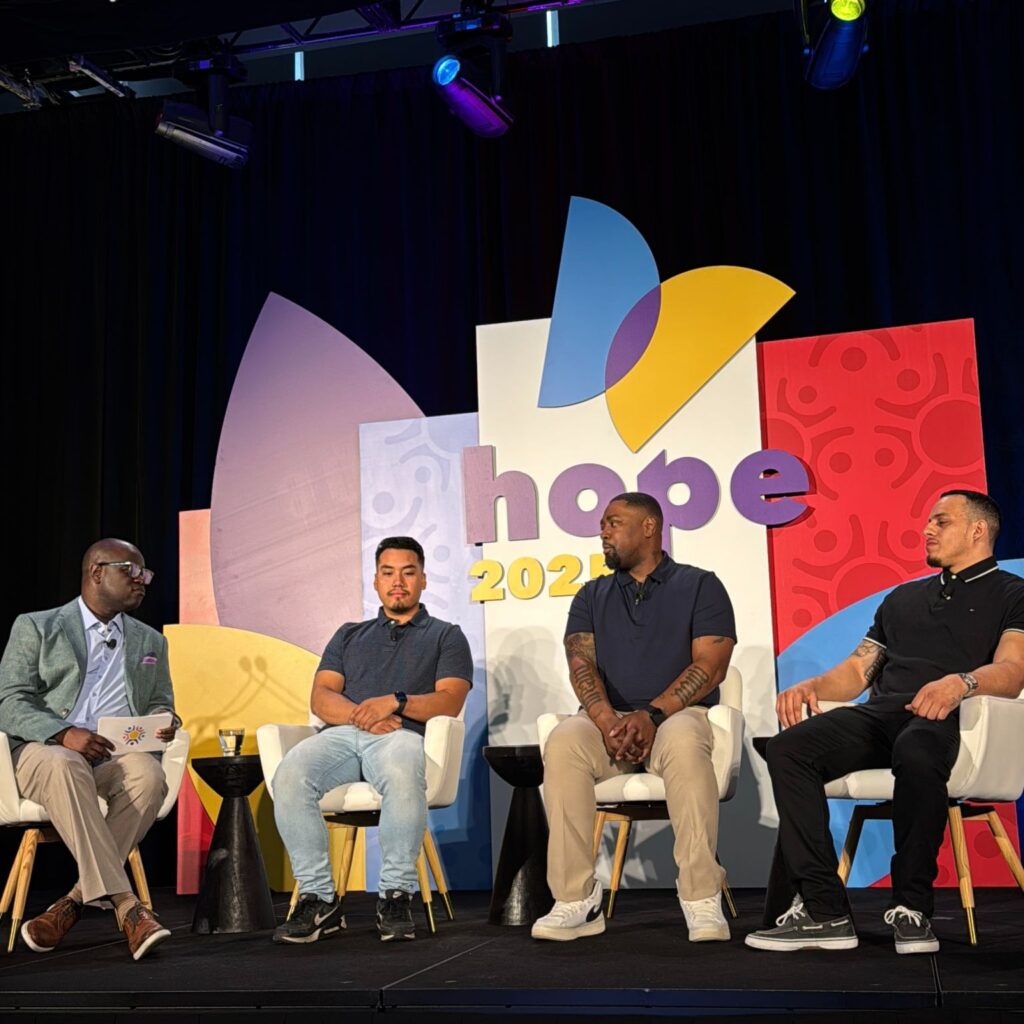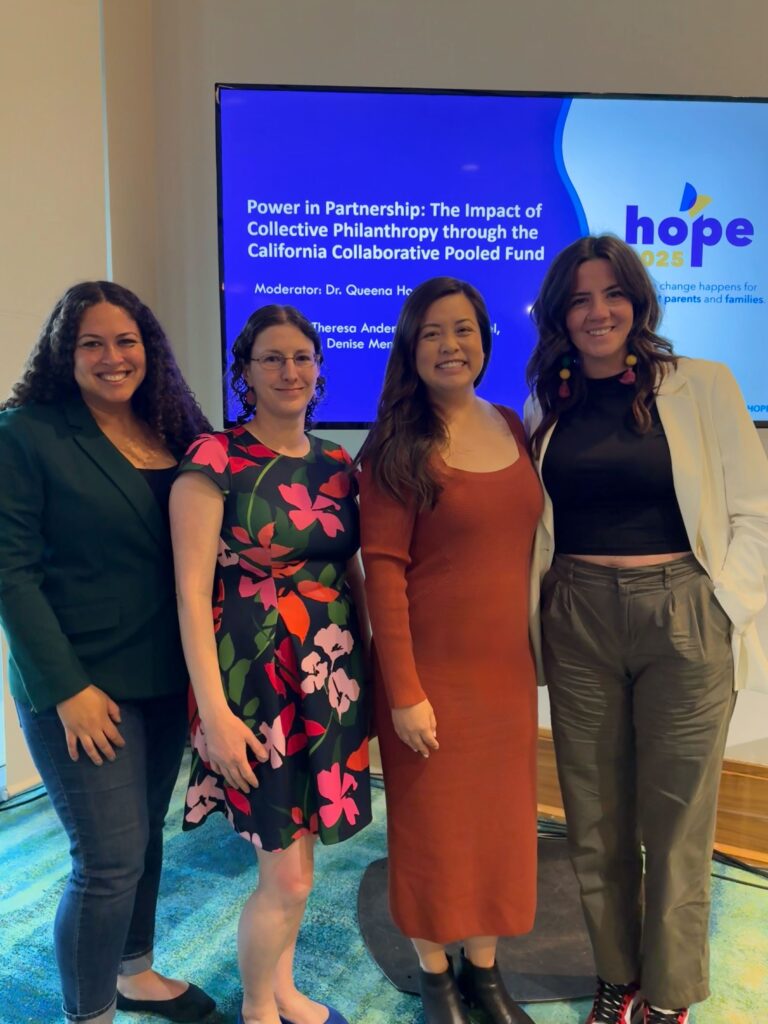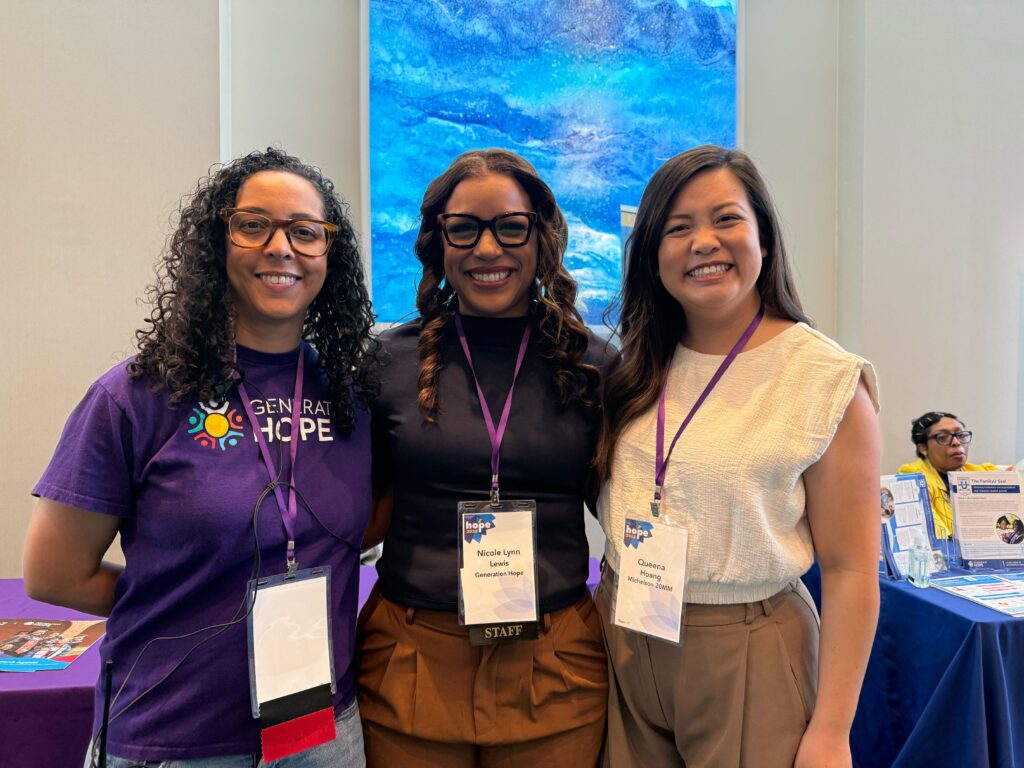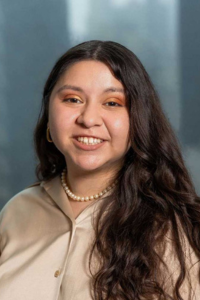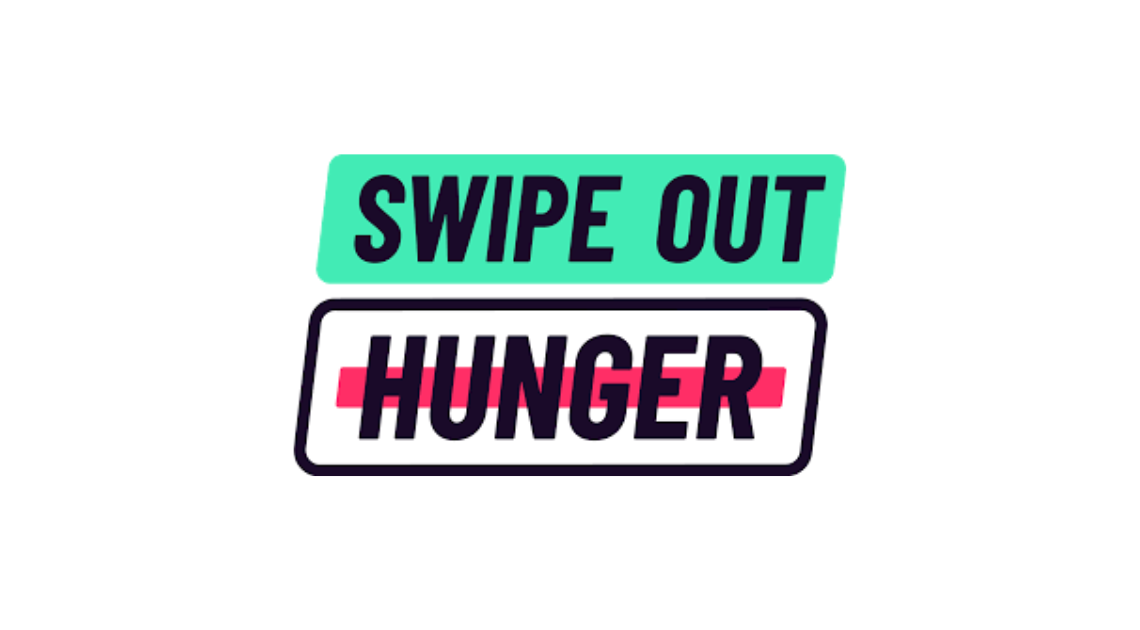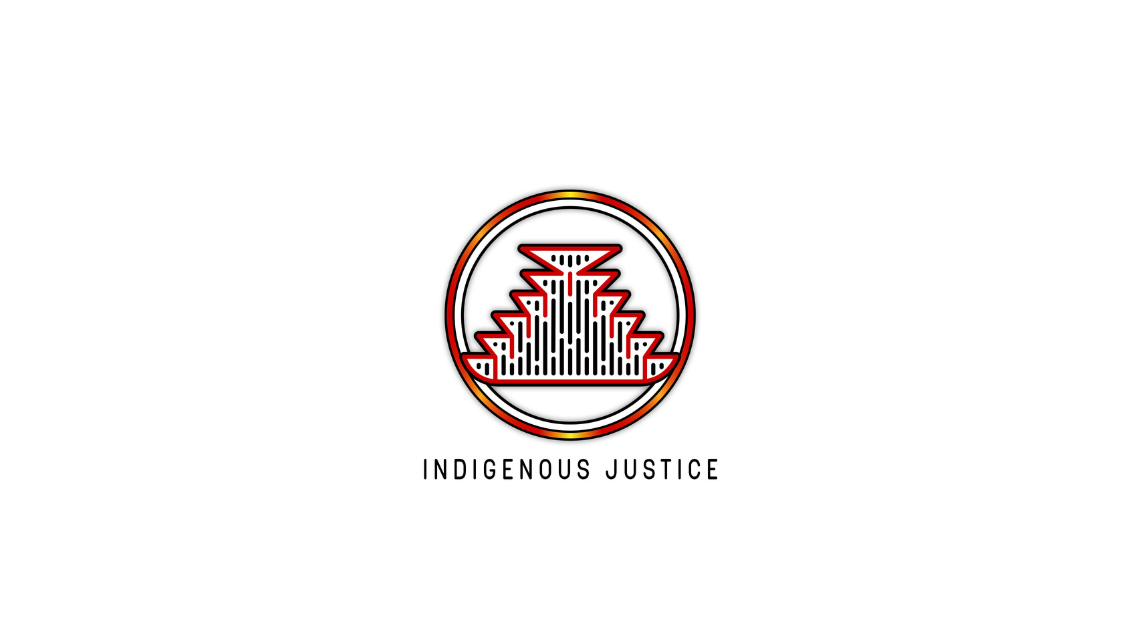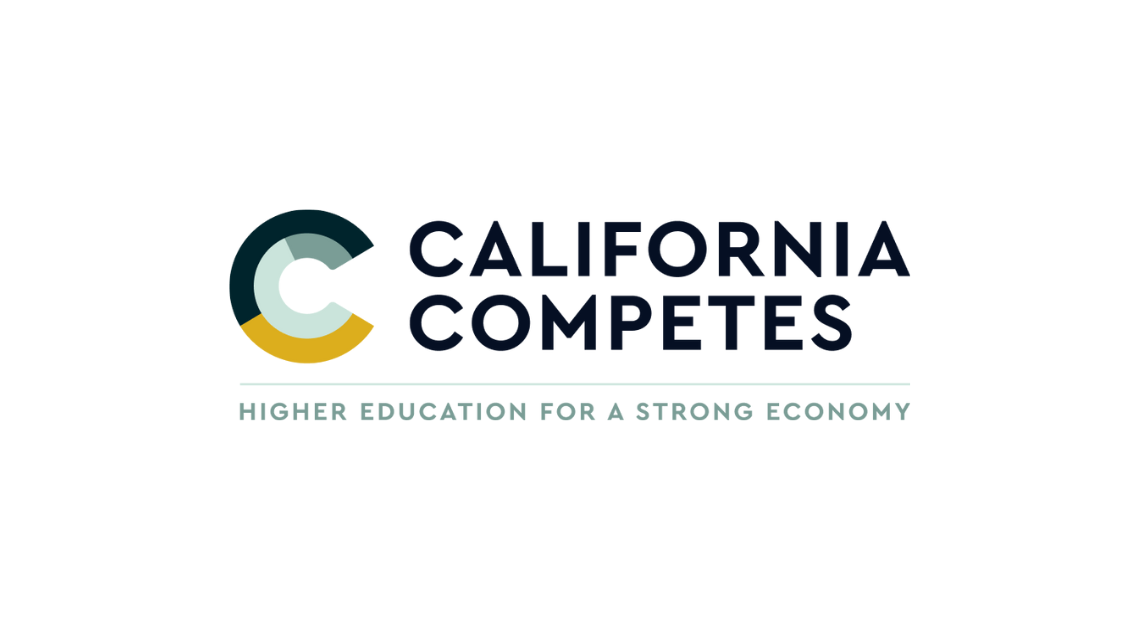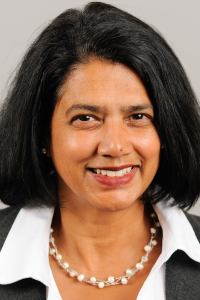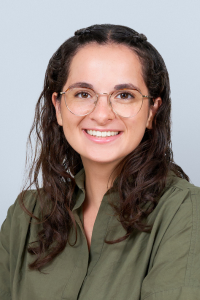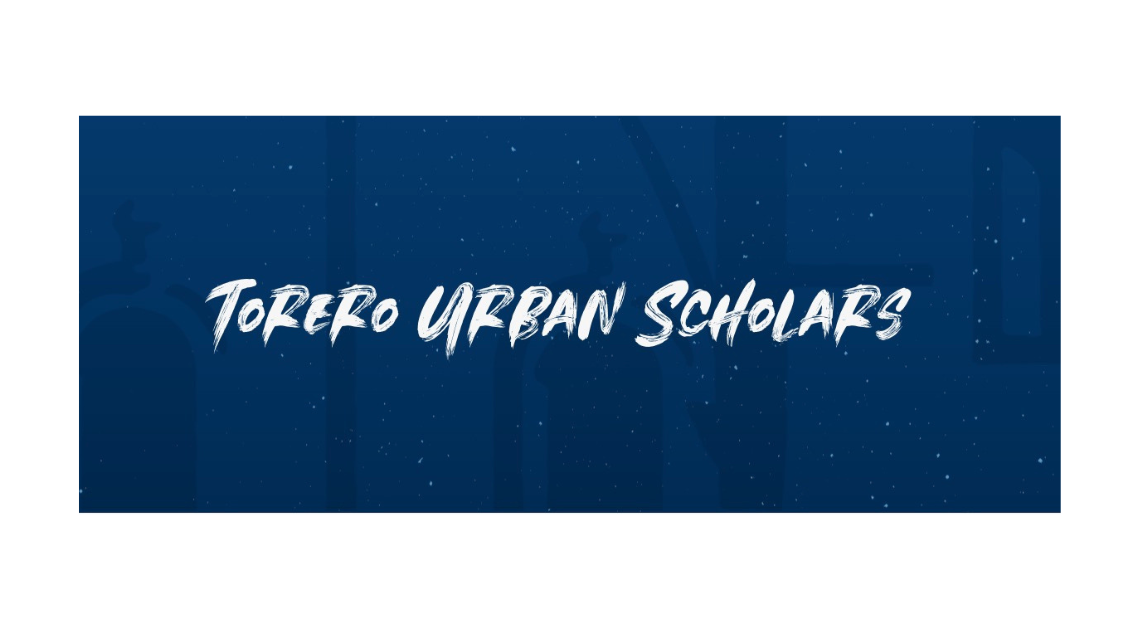By Kenia Miranda Verdugo
Educators, advocates, students, and formerly incarcerated scholars gathered for the 14th National Conference on Higher Education in Prison (NCHEP) in New Orleans. The Alliance for Higher Education in Prison hosted the event, with support from a range of dedicated sponsors, including the Michelson 20MM Foundation. This year’s theme, “A New Era? Pell Reinstatement and the Future of Prison Education,” served as a catalyst for deep discussions on the evolving landscape of higher education in prison. We left the discussions truly inspired.
Building Connections and Collaborative Networks
The conference brought people together to collaborate on a common goal: expanding educational opportunities for incarcerated individuals. Attendees traded ideas, shared stories, and forged partnerships to grow higher education in prison.
New Orleans: A City of Resilience and Renewal
The organizers intentionally chose New Orleans as the venue for NCHEP 2025. The city’s resilience and cultural renaissance mirrored the conference’s themes of transformation and empowerment. As a backdrop, New Orleans underscored the significance of education as a tool for liberation and community-driven change.
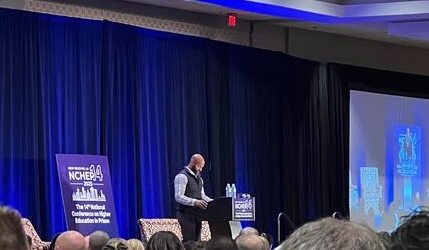
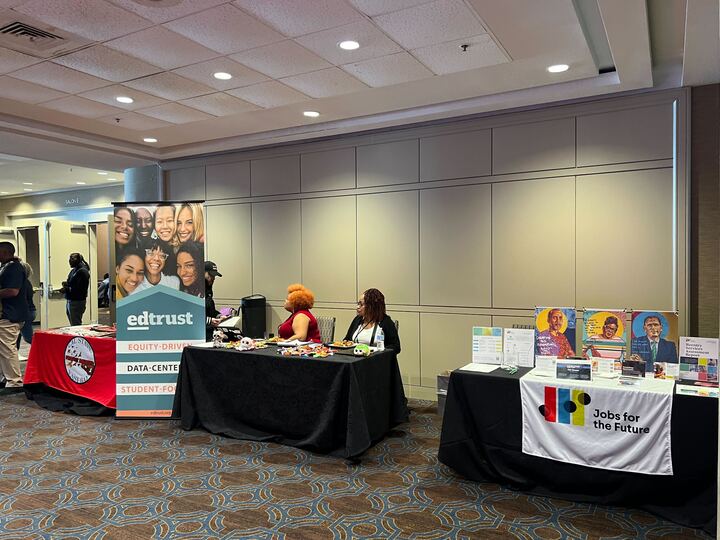
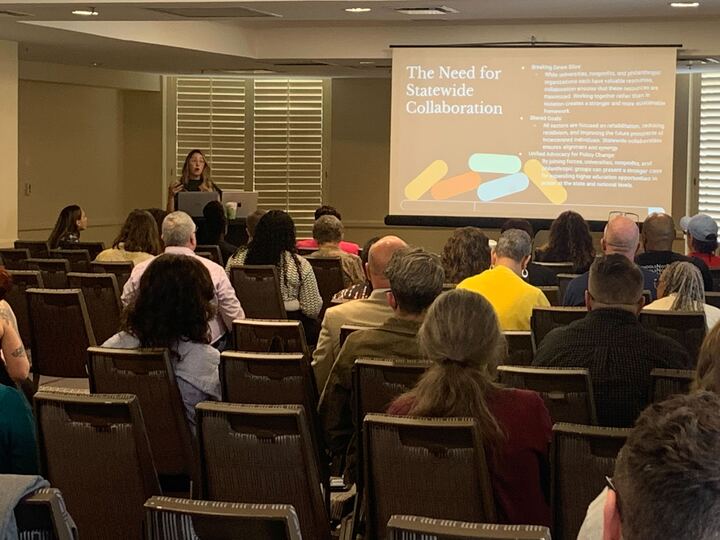
Engaging Sessions and Thoughtful Dialogues
During the two-day conference, participants engaged in a series of sessions that delved into critical topics:
- Navigating Pell Reinstatement: Discussions centered on the complexities of reintegrating Pell Grants into prison education programs. This included addressing accreditation, budgeting, and reporting challenges. One of these sessions introduced Navigating Forward. It is a suite of resources developed by the Tennessee Higher Education Initiative to help incarcerated students understand financial aid, Pell funding, and higher education policies.
- Leveraging Technology: Explorations into the integration of digital tools, such as Zoom and virtual classrooms, can enhance educational access within correctional facilities. These discussions illustrated remote work opportunities within carceral settings, covering the technical and logistical aspects of these programs.
- Student-Centered Design: Emphasis on the importance of incorporating student voices in program development to ensure relevance and effectiveness. We know that those closest to the problem are closest to the solution, these discussions emphasize that for program development. Some reentry programs were highlighted to show the success of when people with lived experience are immersed in development from start to finish.
- The Need for Statewide Collaboration: Sessions focused on building consortia in states across the country in order to break down silos amongst stakeholders. The Michelson 20MM Foundation spoke of the need for formalized statewide collaboration in California in order to further achieve unified goals. This was followed by a panel discussion by the Mississippi Consortium for Higher Education in Prison (MCHEP) on the formation and impact of this collaborative initiative aimed at providing post-secondary education opportunities to incarcerated individuals in Mississippi.
At Michelson 20MM, we believe education is a powerful lever for equity. By supporting higher education in prison, we’re investing in a future where knowledge becomes a pathway to liberation.
Looking Ahead: The Future of Higher Education in Prison
As NCHEP 2025 concluded, attendees left with a renewed sense of purpose and a collective commitment to shaping the future of prison education. The discussions and connections made during the conference set the stage for continued advocacy and innovation in the field.
About the Michelson 20MM Foundation
Michelson 20MM is a private, nonprofit foundation working toward equity for underserved and historically underrepresented communities by expanding access to educational and employment opportunities, increasing affordability of educational programs, and ensuring the necessary supports are in place for individuals to thrive. To do so, we work in the following verticals: Digital Equity, Intellectual Property, Smart Justice, Student Basic Needs, and Open Educational Resources (OER). Co-chaired and funded by Alya and Gary Michelson, Michelson 20MM is part of the Michelson Philanthropies network of foundations.
To sign up for our newsletter, click here.
